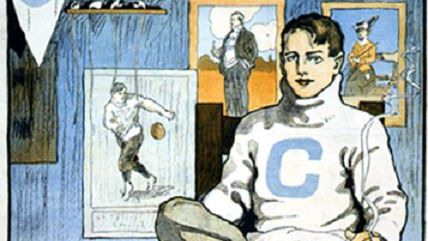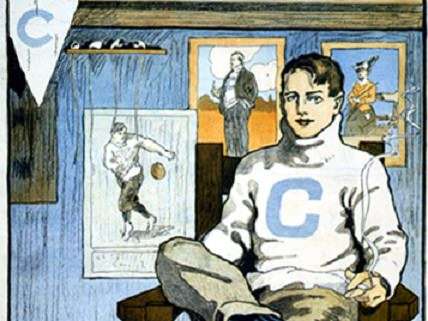Law Students, Traumatized By Grand Jury Decisions, Demand… Exam Delays


Students are so coddled by the feelings-protection regime at university campuses that they now believe disheartening national news developments—such as the grand jury decisions in the Michael Brown and Eric Garner cases—entitle them to final exam extensions.
To be clear, the grand jury's decision not to indict the police officer who choked Garner to death is indeed a travesty of justice. It's a horrible thing—for the victim and his family—and a reminder that racism endures in law enforcement agencies around the country, which need reform.
Why on earth that means Columbia University law students should be granted relief from their coursework, I have no idea. But the university evidently agreed with the conveniently traumatized students, according to Fox News:
This won't prepare them for tough judges, unscrupulous clients or merciless partners at the law firms they hope to work for.
Columbia Law School has agreed to delay final exams for students who face "trauma" and disillusionment following two recent, racially-charged cases in which grand juries declined to indict white police officers in the deaths of unarmed black men. And now, students at Harvard and Georgetown want the same dispensation, also saying they just can't face their tests in the wake of the grand jury decisions in Missouri and New York.
"For some law students, particularly, though not only, students of color, this chain of events is all the more profound as it threatens to undermine a sense that the law is a fundamental pillar of society to protect fairness, due process and equality," Robert E. Scott, Columbia's interim dean, told the school in an email Saturday.
David Bernstein, a professor of law at George Mason University, described Columbia's decision as "infantilizing." He explained that if any students received special extensions, all would soon require them:
"In an understandable effort to show sensitivity to students upset by the grand jury decisions, Columbia has unfortunately chosen to infantilize them, suggesting that adult law students can't handle hearing about perceived injustices in the world. I can't imagine why any law student would admit that hearing about a seemingly unjust legal decision incapacitates them; how would such people function as lawyers, given that many verdicts deeply disappoint advocates for one side or the other? Meanwhile, to the extent that Columbia students take advantage of delaying their exams, they are getting an unfair advantage - that is, more time to study - over students who don't claim the delay."
Unsurprisingly, this malady of entitlement has spread to other universities. According to Businessweek.com:
"This is more than a personal emergency. This is a national emergency," Harvard Law School students wrote in a letter to the school's administration over the weekend. In a similar letter, Georgetown Law School students wrote: "We, students of color, cannot breathe. … We charge you to acknowledge that Black Lives Matter."
Most schools have policies that allow students who are observing religious holidays, have suffered a death in the family, or have a medical emergency to reschedule their exams. Yet the Michael Brown and Eric Garner cases could signify the first time schools have been asked to move exams because of a grand jury's decisions. It's also forcing law schools to evaluate individually whether students are traumatized enough that their exam grades would suffer should they be asked to press forward.
If law students are upset about the grand jury decisions, perhaps they should rededicate themselves to their coursework in hopes of one day working to reform the system or standing up for those abused by it. But if disappointing legal decisions render them truly unable to function… well, they aren't going to make very good lawyers.
In related news, the president of Smith College had to apologize for writing "all lives matter" instead of "black lives matter," and an associate director of the journalism program at the University of Iowa thinks an offensive art display should be banned.
Perhaps today is the day we can formally announce the completion of a transformation begun long ago: higher education has officially become bumper bowling. Colleges should cease handing out diplomas and instead award participant ribbons.


Show Comments (116)